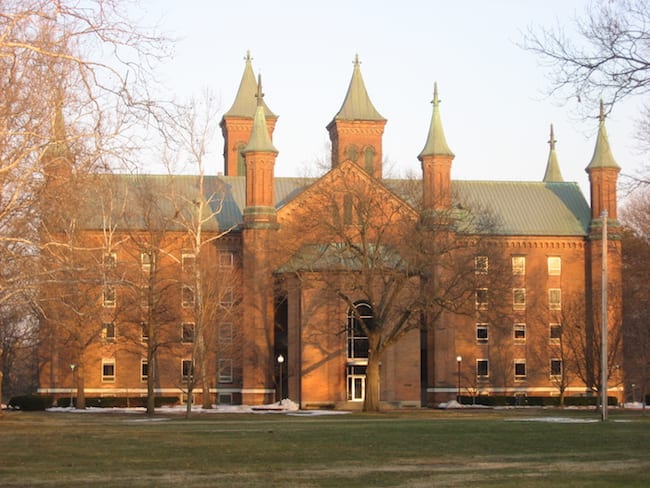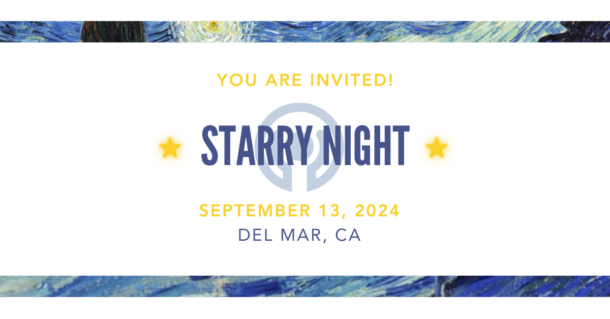Until I was 16, I thought that my uncle had died of cancer rather than suicide. There was always a dark joke in the family that we have a history of mental illness in our lineage. There is the distant cousin who lived in a tiger cage because, well, he thought he was a tiger. My beloved older brother was diagnosed with paranoid schizophrenia when he was 29. Four years later, he took his own life. My mother and I agree that my maternal grandmother struggled with depression most of her life. Her funeral contained quite a few loving statements about how difficult a person she could be. In short, much of my early life was spent in the quiet and shame of mental illness. It wasnt until the death of my brother, my consequential conversion from agnosticism to Christianity and my path toward becoming a vocal advocate for mental health awareness that I began unpacking the emotional layers that come with mental illness.
I was not diagnosed with bipolar disorder until I was 38, but I had spent most of my adult life passively and actively avoiding a full diagnosis. I acknowledged depression in my teens but tried to keep the depth of it to myself. Family tragedy after family tragedy attended my 20s, so I simply went from one crisis to another. As I rode the highs of mania workaholism is a socially acceptable addiction and negotiated the lows of depression alcohol abuse can hide in plain sight I denied to myself and others that anything was wrong. A divorce and a broken engagement attest to the disaster that was my personal life. By the time I was 36, I had earned three master’s degrees while working at least one job, most often two; the lowest GPA I maintained for any of the degrees was a 3.8. The perfect 4.0 came with my Master of Divinity degree, the most important academic achievement of my life. What I was hiding was my personal chaos and torment: the hot and cold attention I paid to those closest to me, the poor impulse control that could result in my sending emails or messages that are best inscribed in a diary and talked through with a therapist, self-medication with alcohol threatening to bloom into full-blown alcoholism. My depression deepened.
Through Gods grace, I was able to hold together a loving, supportive relationship. But the depression was coming more regularly and was more intense; it also presented in my stomach, with sometimes crippling pain. I had nearly every -oscopy imaginable, and would sometimes be bedridden, non-communicative, for days on end. I was diagnosed by a GP with clinical depression after all the tests revealed nothing physically wrong with me. I went on medications and started seeing a therapist, but after a particularly bad depression jag following a pronounced mania, my beloved wife had seen enough. Exhausted and at the end of her emotional rope, she told me that I had to go in for a diagnosis from a psychiatrist. Inside of 20 minutes in that appointment, I was told that I have bipolar disorder. Subsequent analysis and therapy has produced the official diagnosis of Bipolar Disorder II with Rapid Cycling. I also struggle with general anxiety disorder, most often brought on by stress.
So like many of us, I began the painful journey of finding the right medications, life changes, behavior modifications, and slowly commenced communicating to others what my new reality entails. At one point, I had an emotional and mental breakdown and went on leave from one of my jobs (the one that provided insurance) for about four months. I managed to gather myself together enough to fulfill my basic responsibilities for an 18 hours per week ministry position, but soon it became clear to me that the other job was not conducive to total health and wellness. I resigned and consigned us to a life of limited financial means.
I am a small town pastor trying to guide a community that has been around since 1860 into an age that may prove to be the first post-Christian period in 2,000 years. That sounds more daunting than it is, perhaps. I grew up in Yellow Springs. It is a special place filled with wonderful people. A great deal of my identity as a person is owed to the town that raised me. I didnt end up here. I chose to live here. It is where I met my wife. It is where my friends some since grammar school live. It is a place where multiple generations worship in the same church and live side by side or even in the same house. It is home of Antioch, both the college and the university, that put food on our table for over three decades and from where I earned my BA degree. There is a proud Antioch legacy: Horace Mann and Arthur Morgan, Corretta Scott King and Arthur Lithgow, Rod Serling and Walter Anderson. My father is an emeritus professor, a point of great pride for him and for the family. I truly love where I live.
Thats where I am physically. Emotionally and mentally? Huh. I dunno. I find myself at an interesting here moment, and I ask myself what that means: scrapping along with unbelievable student loan debt, medical debt, tax debt, insurance costs and new loans for my doctorate; my here is a place of both uncertainty and deep faith. Financially, things are a disaster. But my med levels are working. I am not drinking alcohol. Im overweight that weight gain with meds is no joke, right?!? but Im feeling contented. Not happy. Happy is momentary. Happy is an experience, and one that I love to enjoy, but contentment is more than a mood: It is a state of being. My here is accepting that I am an unconventionally religious person, but my religiosity drives me to serve others without proselytizing. Like St. Francis of Assisi said: Preach the gospel at all times; when necessary, use words. Its also necessary to point out that I dont look like a typical pastor. I have tattoos. Lots of them. I have dreadlocks. I wear a full beard and a scarf over my head in solidarity with my Muslim and Sikh brothers who are profiled. If they are going to be judged and stopped, do the same to me. My here is filled with possibilities, but also is full of limits. My Bipolar Life.
If youve made it this far, thanks. I hope to hear from you. Heres the deal. Ive signed up to write one of these a month. It might be kind of an arrogant thing to say, Hey, what I think is profound. Read me. Thats not it at all, though. Community is important to me, and that includes online. So, here goes: I will write about God, but thats not the only thing I plan to write on. Im not here to proselytize (remember Francis?) or convert anybody, I just like to know Im not alone. Having bipolar is hard. Thats an understatement. But it can also be beautiful and powerful and good. Im honest, almost to a fault. I promise not to lie to you, or to give you false advice or tips. Im struggling through this whole thing, too. What I want to offer and discuss are things we can do spiritually to help ourselves to enjoy the good times and to negotiate the rough ones. What sort of insights might we make if we dedicate some time to reflecting on what we need to feel centered in ourselves, to make this skin a bit more comfortable for our souls?
Be well, do good works and love one another. Ill try to do the same.
You can read more of Pastor Aaron’s writing on his personal website and see the rest of his IBPF posts here.


